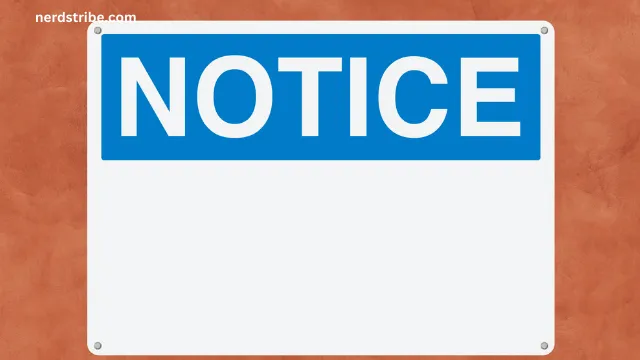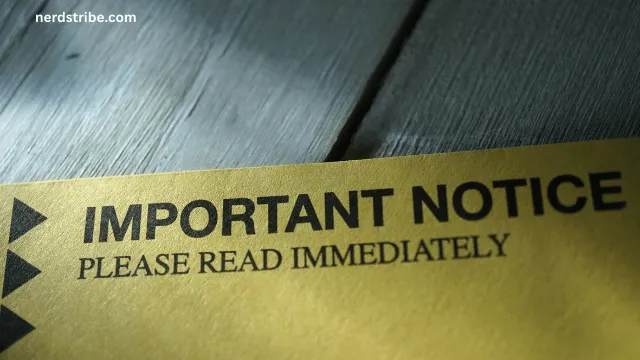In our fast-paced world, we often find ourselves needing to convey apologies for short notice—whether it’s for missing a deadline, rescheduling a meeting, or changing plans at the last minute. But simply saying “sorry for the short notice” can start to sound repetitive and insincere after a while.
As we continue to navigate personal and professional relationships, it’s crucial to find alternative expressions that are both thoughtful and effective. By expanding our vocabulary, we not only avoid redundancy but also add a touch of genuine respect and professionalism to our communications.
You may have been in situations where you had to apologize for not giving enough time, and perhaps you’ve wondered if there’s a better way to express your regret. Whether you’re crafting an email to a colleague, responding to a client, or texting a friend, the right words can help you strike the perfect balance between being apologetic and courteous.
In this blog post, we will explore 10 other ways to say “sorry for the short notice” that will help you communicate your message clearly and thoughtfully. The words we use in moments of apology matter more than we think.
An apology is more than just saying sorry—it’s about acknowledging someone else’s time and needs, while demonstrating that you respect and value them. If you’re ready to find fresh, engaging alternatives to the typical “sorry for the short notice,” keep reading to discover ways to say it with a bit more creativity and empathy.

Contents
- 1 1. Apologies for the Last-Minute Change
- 2 2. I Regret the Delay in Notice
- 3 3. I Appreciate Your Flexibility
- 4 4. Thanks for Understanding the Time Crunch
- 5 5. I Apologize for the Sudden Shift
- 6 6. Please Bear With Me on This Short Notice
- 7 7. I Understand the Timing Isn’t Ideal
- 8 8. Sorry for the Unforeseen Circumstances
- 9 9. I’m Sorry for the Hasty Decision
- 10 10. Thank You for Your Patience With This Short Notice
- 11 Conclusion
- 12 FAQs
- 12.1 Why should I use alternatives to “sorry for the short notice”?
- 12.2 Can I use these alternatives in both professional and personal situations?
- 12.3 Is it okay to apologize for short notice in advance?
- 12.4 How can I avoid needing to apologize for short notice in the future?
- 12.5 What if the other person doesn’t accept my apology for short notice?
- 12.6 Can I use these alternatives in text messages?
1. Apologies for the Last-Minute Change
In many professional settings, changes or decisions that come late can throw off schedules. Using the phrase “apologies for the last-minute change” is a respectful way to acknowledge that the timing was not ideal, without sounding too informal.
- Example: “Apologies for the last-minute change in our meeting schedule, but I had an urgent matter to attend to.”
2. I Regret the Delay in Notice
Sometimes, delays happen that you can’t control, and when they do, it’s important to show that you understand how inconvenient it can be. Saying “I regret the delay in notice” communicates that you’re aware of the timing issue without over-explaining.
- Example: “I regret the delay in notice, but I will be able to meet at 3 p.m. today if that works for you.”
3. I Appreciate Your Flexibility
Instead of focusing solely on the apology, this phrase emphasizes appreciation for the person’s understanding. It helps soften the message by recognizing that they may need to rearrange their own plans.
- Example: “Thank you for your patience, and I appreciate your flexibility with this unexpected change.”
4. Thanks for Understanding the Time Crunch
Acknowledging a time crunch is a great way to express the urgency of the situation. It conveys that you know the time constraint is an issue, and you’re grateful they’re willing to work with you.
- Example: “Thanks for understanding the time crunch, and I’ll make sure to keep you updated as soon as possible.”
5. I Apologize for the Sudden Shift
Using words like “sudden shift” helps convey that the change wasn’t expected or planned, and you recognize the inconvenience caused by the abruptness of the decision.
- Example: “I apologize for the sudden shift in the timeline, but the circumstances were unforeseen.”

6. Please Bear With Me on This Short Notice
This is a more informal yet courteous way to ask for patience. It acknowledges that the notice was short and politely requests the other party to bear with you.
- Example: “Please bear with me on this short notice; I’ll have all the details sent over as soon as possible.”
7. I Understand the Timing Isn’t Ideal
When the timing is far from perfect, it’s important to express your awareness of the situation. Saying “I understand the timing isn’t ideal” shows empathy and consideration for the other person’s time.
- Example: “I understand the timing isn’t ideal, and I appreciate you making time for this meeting.”
8. Sorry for the Unforeseen Circumstances
When something unexpected happens that causes a disruption, this phrase allows you to express regret for the circumstances rather than just the notice itself. It helps frame the situation in a way that’s both understandable and relatable.
- Example: “Sorry for the unforeseen circumstances. I know this is last-minute, but I hope you can still accommodate the change.”
9. I’m Sorry for the Hasty Decision
If the decision or change was made hastily, it’s essential to apologize for the speed of the decision, not just the timing. This conveys that the quick decision-making process may have impacted others.
- Example: “I’m sorry for the hasty decision, but I wanted to make sure we could move forward.”
10. Thank You for Your Patience With This Short Notice
A more positive approach that expresses gratitude for their understanding and patience, especially when things are running on a tight schedule. It reinforces that you value their time and cooperation.
- Example: “Thank you for your patience with this short notice. I appreciate your willingness to accommodate the change.”
Conclusion
Finding ways to apologize for short notice without sounding redundant is essential for maintaining good communication in both professional and personal settings. Each of the expressions above offers a nuanced approach, allowing you to express your regret in a way that is more fitting for the situation at hand.
By incorporating these alternatives, you can ensure that your apology feels genuine and considerate, leaving the other party with a sense of respect and understanding. Whether you’re apologizing for a last-minute change or a delayed decision, the right choice of words can make all the difference in keeping relationships positive and smooth.
Next time you need to apologize for short notice, remember that it’s not just about the apology, but how you convey it. A small change in wording can have a significant impact on how your message is received. Choose wisely, and you’ll continue to communicate effectively, no matter the timing.
FAQs
Why should I use alternatives to “sorry for the short notice”?
By using different phrases, you avoid sounding repetitive, and you can tailor your message to suit the specific situation. It also adds a layer of empathy and consideration, making your apology feel more thoughtful.
Can I use these alternatives in both professional and personal situations?
Yes, these phrases can be adapted for both settings, though some may be more casual than others. For instance, phrases like “thanks for your patience” might work better in personal situations, while “I regret the delay in notice” may be more suitable for professional environments.
Is it okay to apologize for short notice in advance?
Absolutely! If you anticipate a situation where short notice will be an issue, addressing it upfront with a suitable alternative can show that you are proactive and considerate.
How can I avoid needing to apologize for short notice in the future?
Planning ahead, setting realistic deadlines, and communicating early are key strategies to avoid last-minute changes that may require an apology.
What if the other person doesn’t accept my apology for short notice?
If someone seems upset, it’s important to listen to their concerns and acknowledge the impact your actions have had. Being empathetic and understanding of their frustration can help rebuild goodwill.
Can I use these alternatives in text messages?
Yes, these alternatives work well in both formal and informal text messages. Just ensure the tone matches the context of your relationship with the recipient.








